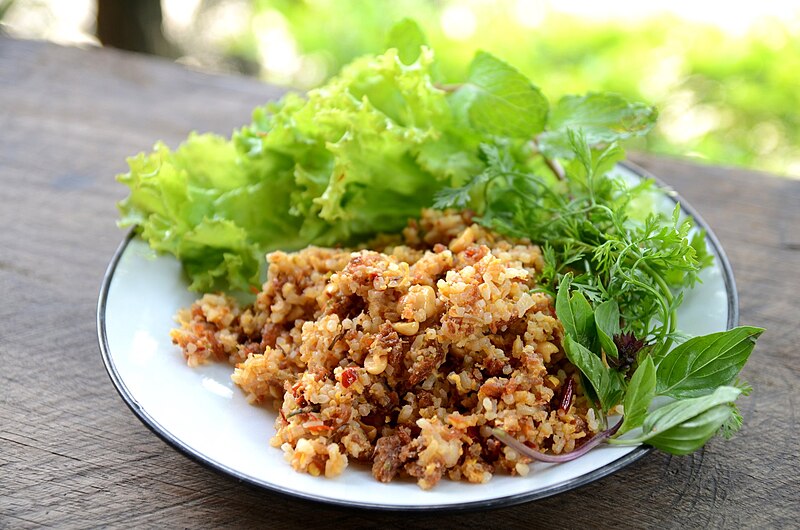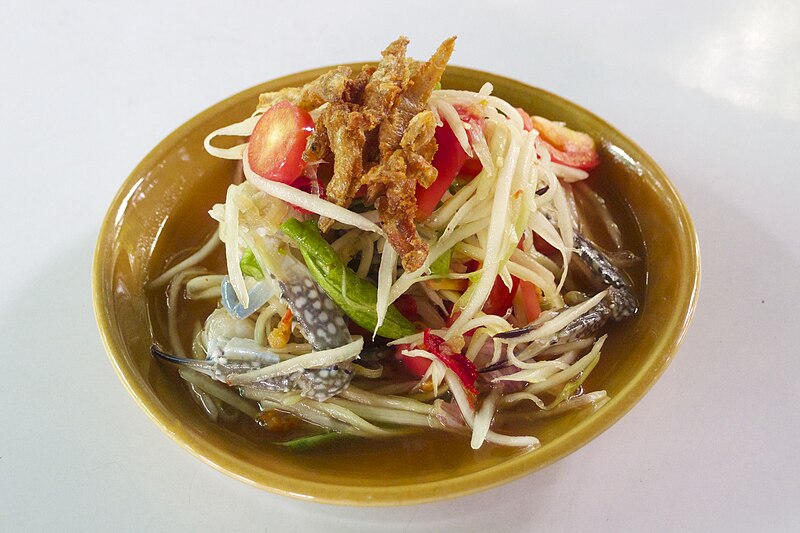Beyond the Flavour
Nutritional Benefits of Fermented Thai Food
During the dry seasons and months awaiting harvest, Thai cuisine, renowned for its fresh, herby flavours and aromatic spices, centres on another culinary gem: fermented foods. This traditional technique, popular among the northern communities, not only enhances taste and preservation but also unlocks a trove of health benefits. Explore some popular fermented Thai dishes from around the region, and discover their surprising nutritional advantages.

The Power of Fermentation
While further research is needed to fully understand the extent of health benefits, fermented Thai foods offer a compelling combination of taste and tradition. The inclusion of these fermented dishes in your diet can contribute to a healthier gut, potentially boost immunity, and provide essential vitamins and minerals.
Naem (Fermented Shredded Red Meat in Glutinous Rice)
This flavourful sausage undergoes a lactic acid fermentation process that not only enhances its shelf life but also enriches its nutritional profile. Naem boasts a good amount of potassium, a mineral essential for regulating blood pressure and muscle function. The red meat is enjoyed raw in certain parts of the region, as found sometimes at Chiang Mai restaurants.
Miang Sod (Fermented Tea Leaves)
A ubiquitous element in northern Thai cuisine, Miang Sod are fermented tea leaves packed with probiotics. These beneficial bacteria contribute to a healthy gut microbiome, aiding digestion and potentially boosting the immune system. Experience this unique flavour profile, accompanied by meats and tamarind paste on a river cruise up north, with Jao Ping’s 4-course menu by Anantara Chiang Mai Resort.
Nam Prik Gapi (Fermented Shrimp Paste)
This pungent condiment is a staple in Thai kitchens. The fermentation process increases the bioavailability of iron and zinc in the shrimp, making them more readily absorbed by the body. Additionally, this preservation technique promotes the growth of good bacteria, aiding gut health.
Tanon Jeen (Fermented Noodles)
These thin rice noodles undergo a short-term fermentation process that breaks down some of the starches, potentially making them easier to digest, particularly for those with sensitivities.
Salted Thai Crab Salad (Fermented Crab)
This spicy and savoury dish features fermented river crab meat processed in a salty brine, and used in parts or as sauce across many dishes. Fermentation not only preserves the crab but also breaks down proteins into simpler components, potentially enhancing nutrient absorption.
Related posts
Archives
Categories
- Appetizers (26)
- Arab (48)
- Bars (35)
- Burmese (6)
- Café (26)
- Casual Dining (38)
- Chinese (37)
- Coffee House (29)
- Desserts (38)
- Destination Dining (386)
- Diner (28)
- Family Restaurants (71)
- Fast Food (65)
- Fine Dining (524)
- Food Facts (224)
- Healthy Food (108)
- Hong Kong (10)
- Indonesian (15)
- Italian (2)
- Japanese (17)
- Main Dishes (63)
- Maldivian (73)
- Miscellaneous (8)
- Miscellaneous Topics (395)
- Palate (68)
- Recipes (95)
- Restaurants (206)
- Sea Food (99)
- Singaporean (34)
- Sri Lankan (62)
- Steaks & Grill (70)
- Street Food Stalls (152)
- Thai (94)
- Types of Cuisines (120)
- Vegan (63)
- Vegetarian (10)
- Vegeterian (39)
- Vietnamese (22)
- Western (11)

